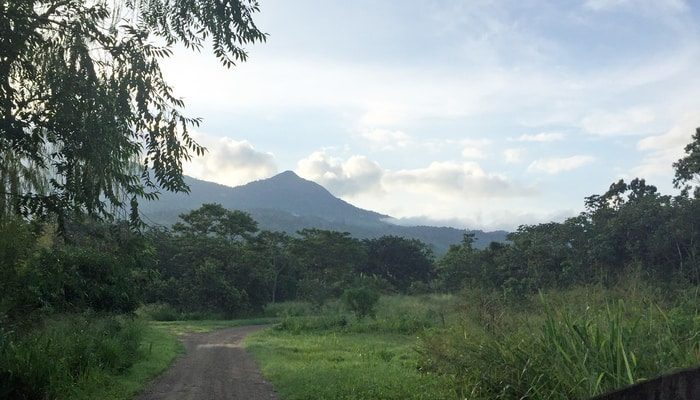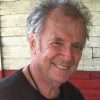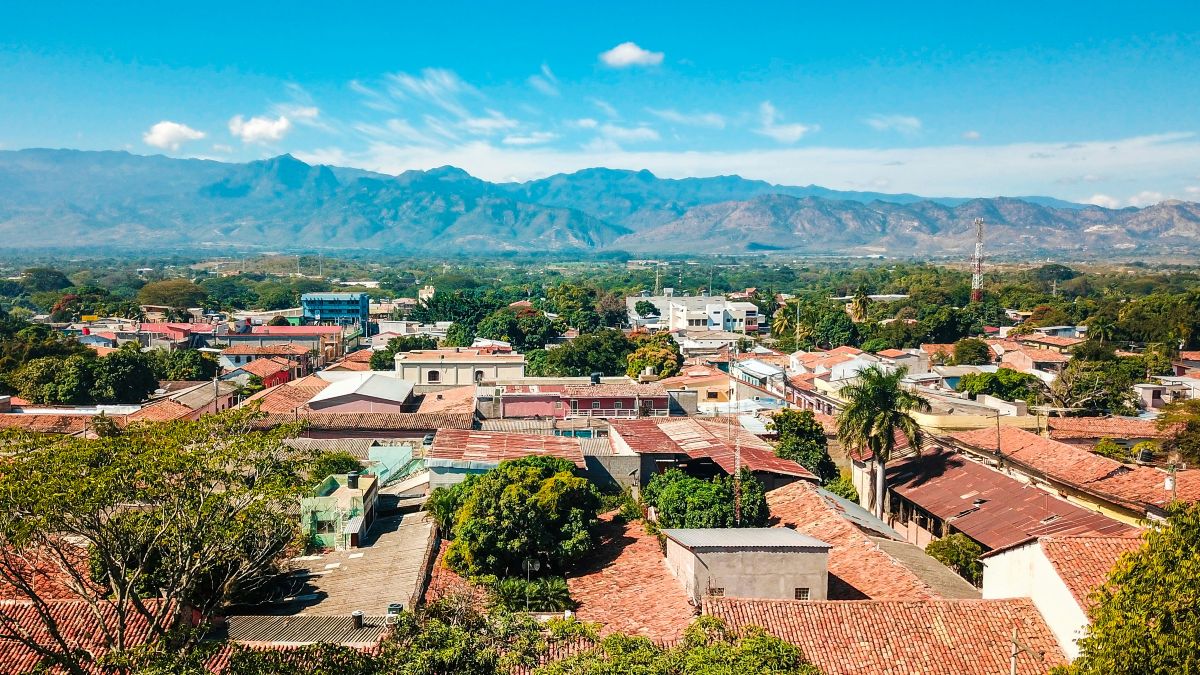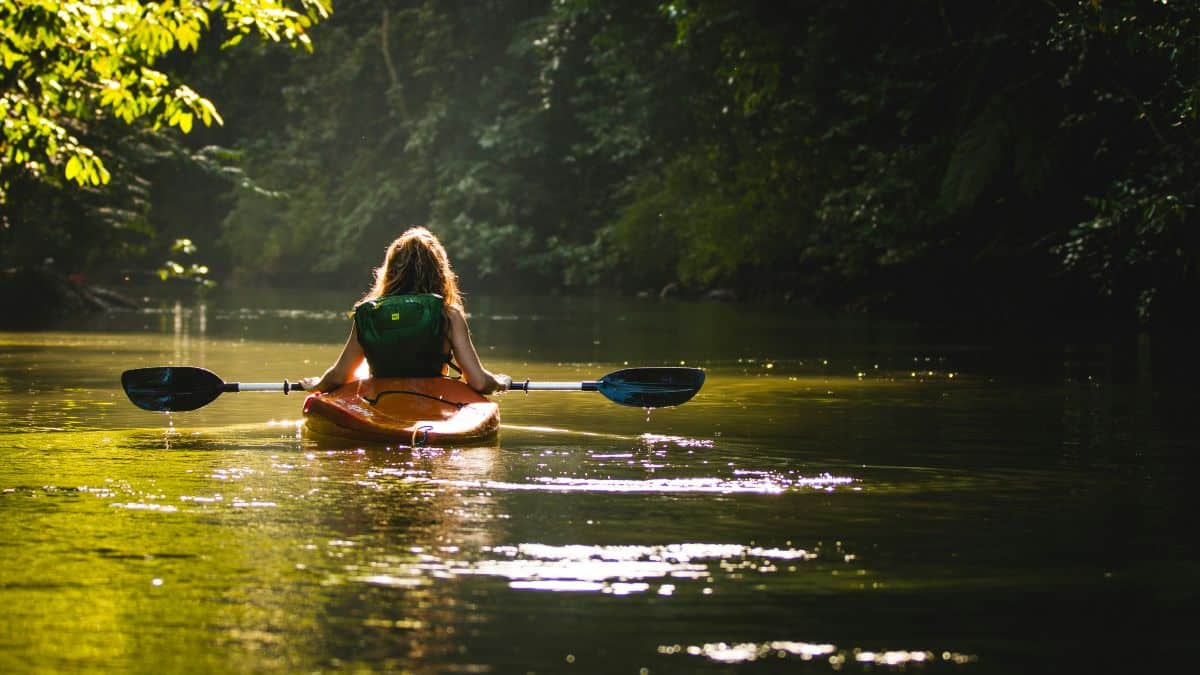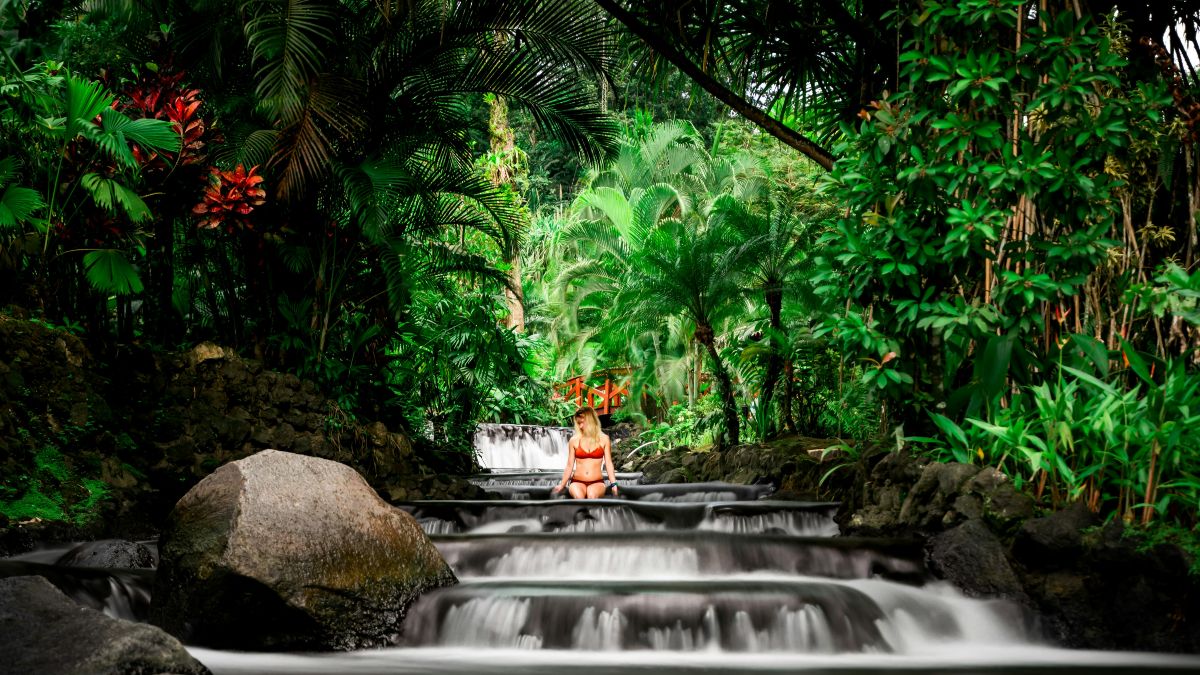Expat writer Paul McCurdy takes you on a walk near to his home outside of Trujillo, on the Caribbean Coast of Honduras in Central America.
For morning exercise, I often hike up the mountain behind our house. We have no fitness centers in Trujillo, Honduras and swimming is not always an option or something I want to do.
Instead, I take a 90-minute walk on alternating days.

Our house borders the Campo del Mar Nature Park, with its gardens, orchards, and an animal rescue center. As I step out onto the road, the sound of insects and a variety of birdsongs greet me. Near the animal quarantine area, a monkey rattles the tin roof of his cage to get my attention.
I cross a small bridge hoping to spot the local iguanas basking in the sun.
At the security checkpoint for our small community, I greet the guard on duty. He smiles and comments on my morning exercise. He notifies the other guards via walkie-talkie that “Señor McCurdy es caminando por la montaña”.
A van full of nature park workers then arrives, so I stop to have a quick chat. Some of them speak English, which saves me embarrassing myself with my limited Spanish.
Out onto the road between Trujillo and Santa Fe, people are waiting for the bus. We exchange greetings – “Buenos dias” – as I walk by. Everyone I pass smiles and greets me.

Now I’m familiar to some of them from my walks, they are often the first to call out and wave. I’ve found people in Honduras are friendly, given the chance, and when you attempt to chat. As soon as you make contact, they will respond with a smile and wave.
One of those I pass often gives me a word in Spanish which requires looking at Google Translate on my iPhone. This makes me think of other words to practice when I meet someone.
Five minutes later I turn left off the main road. I make my way up the mountain, past the community of Cora Salta and on to the village of Buena Vista. On his way down is a man on his mule, who brings two cans of milk most mornings, and who always has a smile.
Once, when walking with friends, he gave them some milk to take home. They had to force him to accept payment, as he kept saying no, it was free.
Also here are parents taking their children to school. The fathers are on their trail bikes with up to three children on the back while the mothers are walking. All the students are well-dressed in clean white tops and dark blue pants or skirts. I’m amazed how they keep them so clean. Most of their homes have dirt floors they wash all their clothes by hand.

The road continues beside a stream for a short distance. Before I reach the local pulperia (corner store), I pass a side road leading to the old Spanish trail. Built in the 1500s, they used this trail to transport gold to Trujillo for shipment to Spain. Some of the original cobblestone paving still exists. It’s worth a visit, with some nice pools for a refreshing dip along the way. But I’m on my exercise regime so I pass by and keep hiking up.
Due to the heavy rain, the gravel road has taken a beating, with the running water causing large runnels to form. But there was a road grader at the bottom and I hope they will make repairs.
A local developer built the road to Buena Vista around five years ago. Before that, the path was only passable only on foot, horse, or by trail bike. Although his property ended before the village, he pushed the road through and added power lines. This gave Buena Vista access to electricity for the first time.
Heading down the road towards me is Irma, our housekeeper. She lives in Buena Vista and walks down to our house in the morning (I drive her back each day as it’s almost all uphill). She greets me with a smile and “Como estas?”
After walking for about 45 minutes uphill on grades of up to 20 degrees, I’m finally at Mango Tree Lookout. It overlooks Trujillo Bay and in the distance is Puerto Castilla where Dole ships their fruit from.

Across a small alley on the side of another mountain, there are fields and through the palm trees a small house. I could continue on to Buena Vista, but after a short break, I decide it’s time to head back down.
On the way, I hear something like a chicken trying to make duck sounds. I look around and spy a toucan high in a tree – a beautiful bird with its large beak and striking colors.
Then I see a flight of Montezuma Oropendola, with dark bodies, flashes of yellow in their tails, and bright orange beaks.
![By Charlesjsharp (Own work) [CC BY-SA 3.0 (https://creativecommons.org/licenses/by-sa/3.0)], via Wikimedia Commons](https://cdn.www.centralamerica.com/wp-content/uploads/2017/11/Webp.net-resizeimage-121-e1510689530115.jpg)
Then it’s past the pulperia again where a rooster is herding chickens across the road. He waits for the last hen to appear before following them back into the bush.
Back on the main road, an old yellow bus appears and picks up those waiting. He gives me a quick honk in greeting then charges on down the road to the next stop. As he crosses the Monoguay river, I notice a lone cow ambling along, stopping for the occasional bite of grass.
I walk on back to the house where it’s time for breakfast.
Paul McCurdy is a part-time resident of Trujillo, Honduras since 1996. He and his wife Charlene delight in sharing their experiences of Honduras on their Hola Honduras blog and on their Facebook page.
